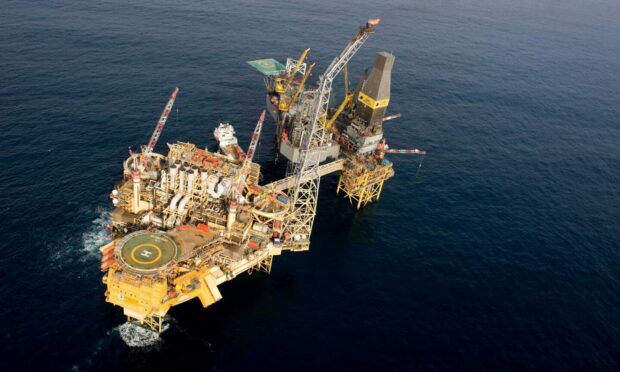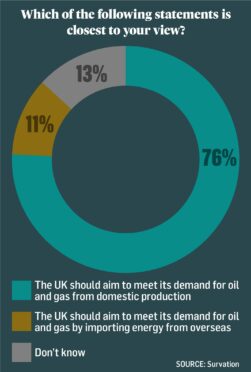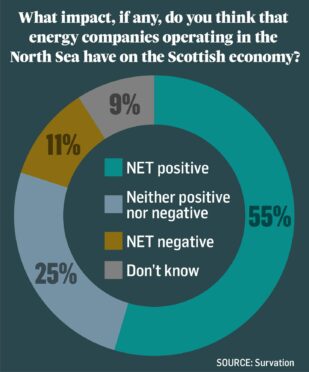More than three quarters of people in Scotland think the UK should aim to meet its demand for oil and gas from domestic production, a new poll shows.
The research, conducted by polling firm Survation, suggests 76% of people in Scotland think North Sea drilling is preferable to importing oil and gas.
Just 11% of those surveyed think the UK should import oil and gas from overseas, while 13% said they don’t know where they stand on the issue.
The results were previewed at a special event at Aberdeen’s Robert Gordon University on Thursday night, hosted by north-east advisory firm True North.
It puts pressure on Nicola Sturgeon whose government unveiled a new energy strategy which calls for a “presumption against” new North oil and gas exploration.
Leading polling expert Professor Sir John Curtice said it shows most people in Scotland think that “for so long as the UK continues to need oil and gas supplies, they are best sourced from within the UK rather than via imports”.
He added: “Indeed, this is one topic on which both nationalist and unionist supporters largely agree.”
Poll findings
The findings also reveal more than half of those surveyed view North Sea energy firms as having had a positive impact on both the UK and Scottish economies.
Those who think it had a positive impact stand on the Scottish economy stand at 55%, while the positive benefit to the UK economy was slightly higher at 56%.
On Prime Minister Rishi Sunak’s controversial windfall tax, 58% of adults polled think it has been ineffective in reducing household energy bills.
And just over half (51%) think the levy has proved ineffective in encouraging energy companies to move away from fossil fuels towards renewable energy projects.
The tax, which applies to profits made from extracting UK oil and gas, will remain in place until March 2028.
Energy Voice revealed on Wednesday that Harbour Energy, the UK’s largest oil and gas producer, plans to cut jobs blaming the UK Government’s tax on profits.
The firm has not confirmed how many jobs will be lost but it is understood to number in the hundreds.
True North, a north-east advisory firm, commissioned the poll which surveyed 1,002 people across Scotland, aged 16 and over.
‘Challenges’
Fergus Mutch, managing partner of the firm, said the findings “throw up some challenges” for both UK and Scottish governments – including around how best to support the energy sector in a time of transition.
He said: “It’s interesting to note that this region’s key industries have nationwide backing as an economic force for good and in leading the delivery of our domestic energy requirements, despite the Scottish Government’s announcement of a presumption against new oil and gas exploration as part of its new energy strategy.
“We know that the UK government’s windfall tax, however well-intentioned, is having a serious impact on investment decisions by energy firms at a time when certainty is needed.
“People across Scotland harbour doubts about its efficacy in lowering their household energy bills, or in terms of encouraging energy firms to move away from fossil fuels towards renewables.”




Conversation